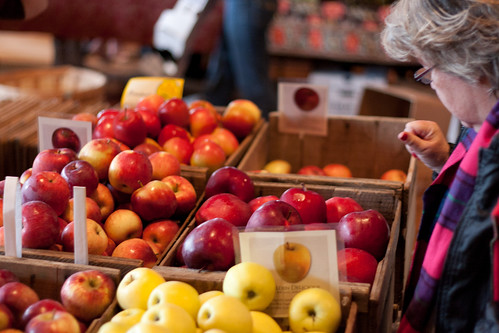
As I’ve traveled the country, I’ve talked with more and more consumers who want a personal relationship with their food and are demanding to know more about it, where it came from and how it got to their plate. I’ve also talked with more and more producers who see the growing market demand for local food as a ripe business opportunity. One of USDA’s goals is to connect the two.
We know that the local foods business is booming. For instance, a recent study by USDA’s Economic Research Service (ERS) reported that marketing of local foods by both direct-to-consumer and wholesale buyers grossed $4.8 billion in 2008. And in 2011 alone, we’ve counted over 7,100 operating farmers markets in the country, and over 170 food hubs.
For the past two and half years, via the Know Your Farmer, Know Your Food Initiative (KYF), the USDA has developed interagency partnerships to support the development of local food systems. We’ve developed a dedicated Farm-to-School Team, increased the number of farmers markets that accept SNAP and other federal assistance programs, supported retailers featuring local food and helped new and beginning farmers entering the local food system.
But this is just the beginning. USDA is committed to supporting America’s local food system. This year’s Agricultural Outlook Forum’s dedicated session titled “Making Locally Grown Food More Available” (scheduled for February 24) is part of that commitment. I look forward to seeing you there.


